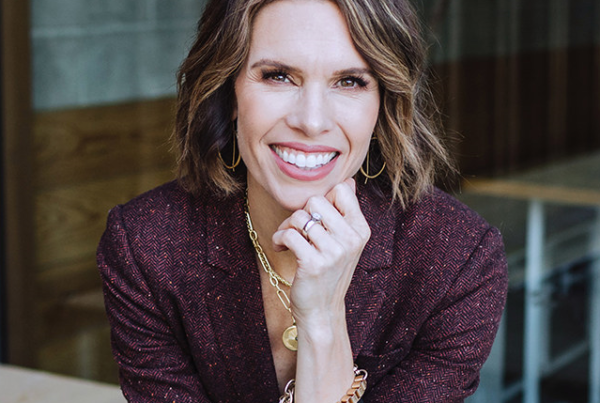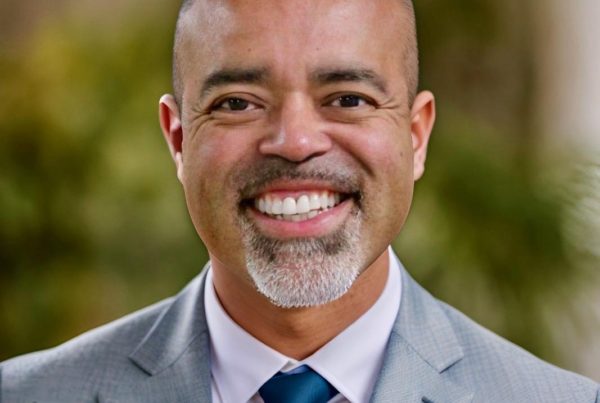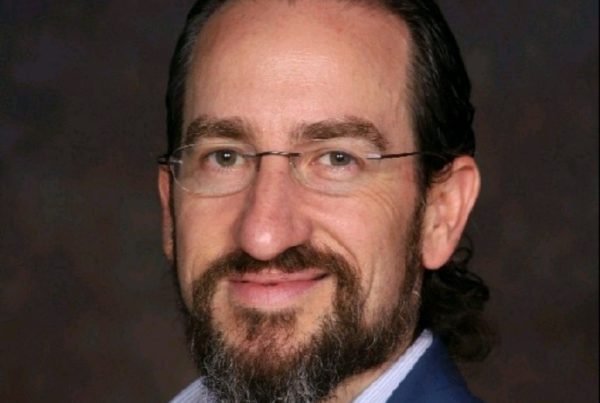Podcast: Play in new window | Download
Subscribe: RSS
How do you overcome trauma using the concepts of post traumatic growth?
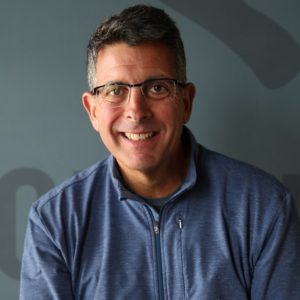
Ken Falke
Ken Falke is a 21-year combat veteran of the U.S. Navy Explosive Ordnance Disposal (EOD) community and retired Master Chief Petty Officer. Ken is highly respected around the world as an innovative and forward thinking leader on the subjects of wounded warrior care, military and veteran transition, counterterrorism, military training, and innovative technology development.
Ken is chairman and founder of Boulder Crest, an organization focused on the teachings of Post Traumatic Growth (PTG), and the EOD Warrior Foundation. Ken spends the majority of his time educating the public and private sectors on the issues surrounding the long-term care of our returning military personnel and their families.
Ken founded A-T Solutions, which is a recognized international expert and valuable global asset in combating the war on terrorism. At the forefront of providing training and consulting services in the Anti- and Counter-Terrorism industry, A-T Solutions was named four consecutive years to the Annual Inc. 500 fastest growing privately held companies in the U.S. A-T Solutions was also awarded the very prestigious Greater Washington Area Government Contractor Award in the category of companies $75M-$100M. In 2010, Ken was named as the Entrepreneur of the Year for the Fredericksburg, Virginia Regional Chamber of Commerce and selected as a finalist in the prestigious Ernst and Young Entrepreneur of the Year program.
What We Discuss With Ken Falke in This Episode:
- What is post traumatic growth (PTG)?
- Coping with trauma: the role of shame and guilt
- Getting unstuck: relationships and the ability to self-regulate
- Unhealed trauma in relation to Adverse Childhood Experiences (ACEs)
- Stress, trauma, and struggles are normal
Tell us more about yourself, how you got into counter-terrorism, and this specific work around post traumatic growth?
I spent 21 years in the Navy. I was a bomb disposal guy, in the military we call it EOD (Explosive Ordnance Disposal). The first portion of my career was doing traditional bomb disposal work and the second half of my career was supporting special forces missions. Our job was to get bomb disposal guys and Navy SEAL teams into places that were mined and booby trapped.
My expertise became weapons of mass destruction, specifically improvised chemical and biological and nuclear bombs. When I retired from the Navy, I was in San Diego, and usually bombs that end up in our cities are responded to by the police department. Prior to 9/11 [attack], the police departments didn’t get a lot of training and equipment for its missions. I had an idea to start a company that would go around the United States and train bomb personnel on more sophisticated threats. After the 9/11 [attack] happened and then the war in Iraq, everybody wanted more of what we were doing.
Our company grew in March 2002 to almost 500 employees when we sold the company in 2010. We were mostly teaching SWAT teams, bomb squads and dive teams on how to respond to terrorist events in the U.S. and abroad and also did training for our military being deployed overseas.
(How his philanthropic work all started: Ken tells the story of the first EOD troop soldier who lost both his legs in Iraq to a bomb.)
I found out that the government was not paying for families to travel to the hospital to be with their loved ones and I found that completely appalling. We thought that, if this war’s going to go on for a long time, we should probably start a foundation to help these people and then we can raise something from the public as well, so that’s what we did. In 2007, we founded the Wounded EOD Warrior foundation and eventually changed the name to EOD WARRIOR FOUNDATION.
In 2010, my wife and I lived on a 200 acre estate and we started bringing the families of these soldiers to our home and that’s what really inspired us. We donated 37 acres of our land and raised 19 million dollars to build the nation’s first privately funded retreat center for combat veterans and their families and that’s called Boulder Crest. It’s a separate non-profit foundation and I’m the chairman of the board of that foundation.
What is Post Traumatic Growth (PTG)?
All of us have trauma. Trauma leaves a mark on us. Veterans don’t have the monopoly on trauma. Trauma is normal. The book, Struggle Well, Thriving in the Aftermath of Trauma, was written for the average person who is suffering with trauma. Here’s our belief: No matter who you are in life, your life follows a series of ups and downs. We call it a Sine wave. You can almost map your life out.
That sine wave is finite. What we believe, the value in understanding our philosophy is that if you understand how to struggle well, if you understand how to keep your mind, your body, your spirituality, and your finances (our wellness model) – if you figure out how to keep those healthy then what you’re able to do in the Sine wave is minimize the severity of the ups and downs (which is very important) and shorten the distance between them.
That’s what we work on in our program: teaching people to self-regulate.
The mental health community for severe depression actually came out with a diagnosis called TRD (Treatment Resistant Depression) so now if the doctor or pharmaceutical can’t solve your depression, they blame it on you, the patient, saying that you’re resistant to treatment.
We don’t believe that. Everybody has the opportunity to grow after trauma.
The important things in our life need to be understood. The science of post traumatic growth suggests that when we are suffering with trauma and we take the opportunity to learn from that trauma, we go on and be a better version of ourselves because we’ve learned, our wisdom has increased and now we’re at a place where we can turn back around and help others on their journey.
(Making meaning of trauma example: Ken tells the story of how he came to make meaning of his father’s death and how telling that story helped him heal through the process)
That’s what I hoped people could do is really understand that there are lessons to be learned from these traumatic experiences. Once we understand these meanings, then we can live a much better life through that trauma.
(Story of Charlie Plumb, a prisoner of war in Vietnam)
On the importance of disclosure…
Brené Brown: “Shame cannot survive being spoken.”
If I talk about it, I’m not holding it inside, then I have less to be shameful of. The science of post traumatic growth calls it disclosure: getting things off your chest. Shame is a big part.
Humans thrive in relationships. The longest study done in Harvard is on the science of happiness. What they learned in this study is that what makes people the happiest in life is in fact, relationships. The best relationships.
Don’t get stuck – there’s a difference between being in a prison and being a prisoner.
My message to everybody: There are ways to get through this, regardless of the type of trauma; you just need a couple of really good tools in your life. Those are the things that we talk about in the book, Struggle Well, Thriving in the Aftermath of Trauma.
1) Relationships: we believe that you become the average of the 3-5 people you spend time with the most in life
2) Ability to self-regulate: when stress does hit our body, can we self regulate? Do we have this ability that allows us to use our body the way it was designed? Our body was designed to self heal.
What are some tell tale signs of unhealed trauma?
It’s all about making meaning of what happened in the past. Humans are the sum of the training that we received from the day we were born until the day that we die. One of life’s biggest lessons or goals of life, is that we work on ourselves all the time and make better versions of ourselves – to increase wisdom, increase our fitness and increase our ability to share the story with others who are coming on the path behind us.
One of the bad things that happens in the world, the scientific community calls
Adverse Childhood Experiences (ACE). During the ages of development, from 4 – 18 years old, if we undergo a lot of trauma through our family and friends and our connections as children – that tends to stick with us for a very long time. Normally, children don’t get the proper treatment for that.
It’s really important to understand, first and foremost, that everybody’s carrying something. They say there’s about 11 or 12 categories: physical abuse, sexual abuse, neglect, poverty, alcohol abuse, homelessness, single parentings, etc. It is said that an average American has at least one ACE score, meaning that all of us have something, but 30% or more Americans have 3 or more ACE scores.
On childhood trauma: We are firm believers that it’s okay to reflect on the past because we get smarter and we continue to go back and make meaning of it.
(Ken tells the story of his abusive grandfather.)
We all have a choice. It’s important to know life is all about living in the present, being here today. It’s okay to reflect on the past, you just can’t be stuck there and live there.
When you get stuck in the past, it’s brutal. But once you let that off your chest, people start to understand and you get that shame off your chest. It’s almost like letting you out of the cage.
Ken’s final thoughts on struggling well:
Know that struggle is normal and what we struggle with is what makes us individuals.
Don’t compare [each other’s] life’s struggles. Everyone’s struggles are different and it is normal. If you do the right things and get the right people around you, you can get through any challenge.
Episode Resources: 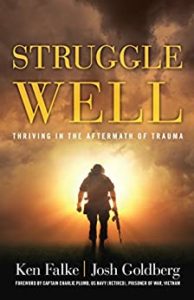
Additional Resources Mentioned:
- Book: Man’s Search for Meaning by Viktor E. Frankl
- Book: Leadership and Self-Deception: Getting Out of the Box by The Arbinger Institute
Connect With Ken Falke:
- Book Website: https://www.strugglewell.com
- Boulder Crest Foundation Website: https://bouldercrest.org
- Facebook: https://www.facebook.com/ken.falke
- Twitter: https://twitter.com/kenstrugglewell
- LinkedIn: https://www.linkedin.com/in/ken-falke-58992036
- Instagram: https://www.instagram.com/kenfalke
Did You Enjoy The Podcast?
If you enjoyed this episode please let us know! 5-star reviews for the Leaders Of Transformation podcast on Apple Podcasts, Spotify, Pandora or Stitcher are greatly appreciated. This helps us reach more purpose-driven entrepreneurs seeking to make a positive impact in the world. Thank you. Together, we make a difference!
Additional Episodes You May Like
- 357: Michael Arterberry: Shake Off The Dirt and Move Forward
- 325: Bobby Herrera: Turning Your Struggles Into Stepping Stones
- 323: Christine Comaford: How To Increase Your Emotional Resilience In Uncertain Times
- 267: Rob Eastman: Stand And Fight For Your Life
- 161: Bill Ferguson: Part 2 – Healing The Deeper Hurts That Mess Up Our Lives








